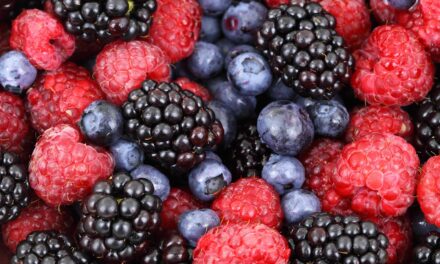The Foundation of Muscle Building After 50: Understanding the Nutritional Blueprint
Entering the fifth decade of life brings with it many accomplishments, wisdom, and, often, the motivation to focus on one’s health more earnestly than ever before. If you’re aiming to build muscle after 50, understanding the role of nutrition is crucial. It’s about more than just protein; it’s a symphony of nutrients working together to repair, rebuild, and rejuvenate aging muscles.
At this stage in life, the metabolism has evolved. It’s not just about what you eat but how your body processes it. The stakes are higher – muscles are more resistant to growth, and recovery times are lengthened. Nutrition for building muscle after 50 requires a thoughtful, tailored approach that goes beyond the generic advice plastered across fitness magazines. It’s about nourishing your body in a way that supports muscular development, hormonal balance, and overall vitality.
While younger gym-goers might tout the benefits of trendy diets or intermittent fasting, the over-50 crowd needs to look at the bigger picture. The balance of macronutrients (proteins, carbohydrates, and fats) becomes more delicate, the importance of micronutrients escalates, and the focus shifts towards anti-inflammatory foods that aid recovery and health.
Think of your nutrition plan as the bedrock upon which your muscle-building efforts rest. It’s not just about bulking up; it’s about constructing a healthier, stronger you, with every meal playing a part in the grand design. In the following sections, we’ll delve into the specifics of what this blueprint looks like and how to apply it to your life, ensuring that each calorie consumed is a step toward strength.
Whether you’re a seasoned athlete or just starting your fitness journey, the next phase is about optimizing nutrition for your body’s current needs. So, let’s lift the fork with the same precision and dedication as we do the weights, and transform our bodies into a testament to health and strength, one bite at a time.
The Nitty-Gritty of Muscle-Building Nutrition Post-50
Protein: The Muscle’s Building Block
The conversation about muscle growth invariably circles back to protein. After 50, the body’s ability to synthesize protein is not as efficient, necessitating an increase in high-quality protein intake. We’re talking about lean meats, fish rich in omega-3 fatty acids, dairy with a balance of whey and casein, and plant-based sources like lentils and chickpeas. Diversifying protein sources ensures a spectrum of amino acids, vital for muscle repair and growth. The aim should be to consume protein with every meal, particularly after exercise, to facilitate muscle recovery.
Carbohydrates: Energy for the Long Haul
Carbs have been vilified unjustly in many fitness circles, but they remain the body’s primary energy source. As a muscle-builder over 50, it’s essential to choose your carbohydrates wisely. Complex carbs like sweet potatoes, quinoa, and whole grains release energy steadily, keeping insulin levels stable and providing the stamina needed for a rigorous workout session. Moreover, they are instrumental in post-workout recovery, replenishing glycogen stores and aiding in protein synthesis for muscle repair.
Fats: The Good, The Bad, and The Muscle Friendly
Fat is not the enemy, especially when it comes to building muscle after 50. Healthy fats from avocados, nuts, seeds, and olive oil are critical for hormone production, including testosterone, which plays a significant role in muscle growth. They also provide a concentrated energy source, helping to sustain longer, more intense training sessions.
Micronutrients: The Unsung Heroes
Vitamins and minerals might not get the limelight, but they are indispensable. For instance, Vitamin D is paramount for muscle function, and its deficiency is common in the over-50 demographic. Magnesium, zinc, and B vitamins also play critical roles in muscle health and energy metabolism. Antioxidant-rich foods, such as berries, green leafy vegetables, and turmeric, help combat oxidative stress and inflammation, promoting faster recovery and better health.
Hydration: The Catalyst for Metabolic Processes
Hydration is another cornerstone of muscle-building nutrition, especially as the body’s thirst response diminishes with age. Water is essential for metabolic processes, including nutrient transport and muscle hydration. It’s recommended to drink water throughout the day, not just during workouts, to ensure that your muscles are well-hydrated and functioning optimally.
Strategic Eating: Timing Your Nutrients Right
When you eat is nearly as important as what you eat. Consuming protein and carbohydrates post-workout can kickstart the recovery process. A smaller, protein-rich meal before bedtime can also aid in overnight muscle repair without spiking blood sugar levels. It’s a strategic approach to eating that aligns nutrient timing with your body’s natural processes for optimal muscle growth.
Summary and Takeaways
Embarking on the journey of muscle building after the golden age of 50 can be a refreshing and transformative experience. Strength isn’t just for the young; it’s a vital aspect of aging gracefully, maintaining independence, and enjoying a quality life.
Key Takeaways for Muscle Building After 50
- Protein is paramount: Increase your intake of high-quality protein from varied sources to support muscle repair and growth.
- Carbohydrates are your friends: Choose complex carbohydrates for sustained energy and effective post-workout recovery.
- Don’t fear fats: Healthy fats are essential for hormone production and provide energy for more intense workouts.
- Micronutrients matter: Vitamins and minerals support overall muscle function and recovery, so ensure a diet rich in these nutrients.
- Stay hydrated: Keep up with regular water intake to support all bodily functions, including muscle performance.
- Timing is everything: Align your meals, especially those rich in protein and carbs, with your workout routine for better recovery and muscle building.
Remember, while the need for a tailored nutritional plan becomes more pronounced after 50, it does not mean the goals are drastically different. The same principles of good nutrition apply, albeit with a greater focus on protein, strategic eating, and the incorporation of a variety of nutrients for overall health and well-being.
Maintaining a consistent exercise regimen that includes resistance training, coupled with these nutritional guidelines, will ensure that you not only build muscle but also enhance your overall health. It’s about finding balance, listening to your body, and making adjustments as needed. Your body might be over 50, but it still holds a remarkable capacity for adaptation and growth.
As we wrap up, let’s keep in mind that building muscle at any age is a triumph of will over age. With the right nutrition, the correct workouts, and a dash of patience, you can sculpt a strong and resilient body that defies the years. Take these insights, apply them to your daily routine, and watch as your body transforms, not just in strength, but in spirit too.






